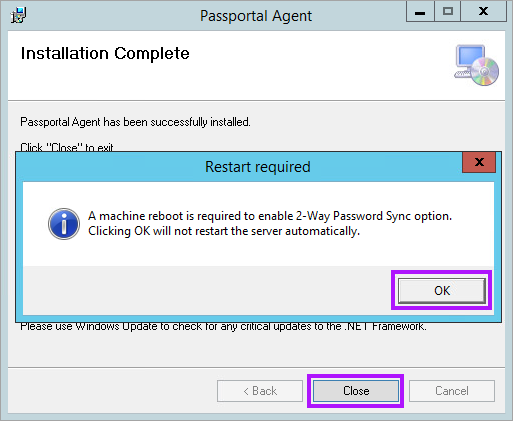

- SHUTDOWN CLIENT PC FROM DOMAIN CONTROLLER HOW TO
- SHUTDOWN CLIENT PC FROM DOMAIN CONTROLLER WINDOWS 7
- SHUTDOWN CLIENT PC FROM DOMAIN CONTROLLER ZIP
- SHUTDOWN CLIENT PC FROM DOMAIN CONTROLLER WINDOWS
The following script is suitable for this. Stop-Computer -ComputerName $s -Force -Credential $cĪlso, you can shutdown multiple remote computers from AD domain. I put on the C:\drive the computers.txt file, and then I execute the commands. Stop-Computer will easily cope with this task.
SHUTDOWN CLIENT PC FROM DOMAIN CONTROLLER WINDOWS
In the Windows credential prompt, specify a password.Ī situation may arise that you or your colleagues may prepare a test file with a list of computers that need to be turned off. Root is the name of the domain, and sem is the username. Stop-Computer -ComputerName w10-cl02, w10-cl03 -Credential root\sem -Force If you need to perform a shutdown on behalf of a specific account, then you can use the -Credential switch: Stop-Computer -ComputerName w10-cl02, w10-cl03 -Force To solve this, you can add the -Force key, which will do a forced shutdown: If someone is currently working on remote computers, you will get an error.
Stop-Computer -ComputerName w10-cl02, w10-cl03 I have two remote computers with Windows 10, w10-cl02 and w10-cl03. The Stop-Computer cmdlet has the -ComputerName switch, through which you can specify a list of systems that require shutdown. Shutdown Remote Computers Using PowerShell cmdlet Now let’s see the help for this cmdlet, for this enter the following command to stop computer via PowerShell : If you simply enter it in a shell on the local computer, then you will begin shutting down. We open it in administrator mode, we will be interested in the Stop-Computer cmdlet. In order to turn off the computer, let’s turn to the PowerShell shutdown command.
SHUTDOWN CLIENT PC FROM DOMAIN CONTROLLER HOW TO
How to Shutdown Single Computer via PowerShell PowerShell performs the shutdown remote computers in bulk without enabling remote shutdown capability (which can pose a major security risk). It will be useful, for example, to massively shut down computers on a list. PowerShell has been recognized as one of the core Windows remote management tools. C:\Program Files (x86)\Windows Resource Kits\Tools) to C:\Windows\System32 and uninstall Resource Kit afterwards.It is logical that most people will always use graphic windows and a mouse to complete work on the computer, this is correct since it is simpler and faster, but there are a number of cases when you, as an advanced user or a system administrator, are simply obliged to be able to perform all tasks without a GUI interface.
SHUTDOWN CLIENT PC FROM DOMAIN CONTROLLER ZIP
This program displays the current privileges of users or groups.Download here: Īfter downloading copy accesschk.exe from the zip to your windows\system32 directory!Open a command prompt (as Administrator !) and enter the command Configuring this privilege is more complicated in Windows Home Editions, because Security Policy Editor is not available.īut there is a solution to modify those settings, but two command line programs are required: The privilege to shut down the computer is called “ SeShutdownPrivilege”.
SHUTDOWN CLIENT PC FROM DOMAIN CONTROLLER WINDOWS 7
Local Security Policy Editor is not included in Windows Home Edition, like Windows XP Home, Vista Home and Windows 7 Home. Removing the user’s shutdown-privilege on Windows Home-Editions This security setting determines which user (who is logged in remotely) has the privilege to shut down the operating system.ĭefault settings for servers (where XP/VS Server is installed): Administrators and Backup Operators Move to Local Policy/ User Right Assignment and on the right pane open “ Shut down the system”. Log in with administrative rights: Start -> Run -> Enter: secpol.msc (Security Policy Editor). This is the right and effective way to solve that issue.įor the following operating systems (except “Home” Editions)


 0 kommentar(er)
0 kommentar(er)
